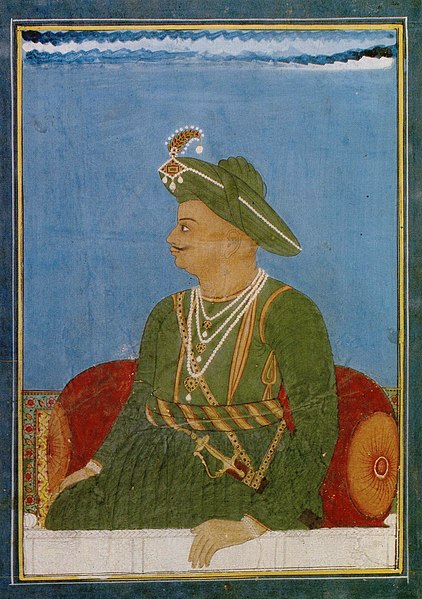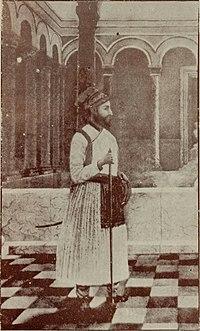Tipu Sultan, the Tiger of Mysore, was one of the most formidable rulers of 18th-century India. He was born on November 20, 1750, in Devanahalli, Karnataka, and ascended the throne of the Kingdom of Mysore after his father, Hyder Ali. His reign was marked by military genius, administrative reforms, and wars of resistance against British colonial expansion.
Early Life and Ascension
Tipu Sultan was born Sultan Fateh Ali Sahab Tipu, the first son of Hyder Ali, a military officer in the Mysore state army, and Fatima Fakhr-un-Nisa. He was raised in a turbulent political environment in southern India and received a comprehensive education in military strategy, administration, and Islamic theology. His father’s numerous military expeditions provided him with a great degree of practical experience as well. At the age of 10, Tipu Sultan accompanied his father on a campaign against the Marathas and the Nizam of Hyderabad. His daring display of courage and military acumen earned him the respect of all and the recognition of the Mysorean army. Following Hyder Ali’s death in 1782, Tipu Sultan ascended the Mysorean throne amid challenges from rival claimants.
Military Campaigns
During this reign, Tipu Sultan was focused on expanding and consolidating the territory of Mysore through a series of military campaigns. He conducted invasions against the Marathas, the Nizam of Hyderabad, and the British East India Company. Furthermore, his widespread use of rocket artillery and innovative cavalry tactics earned him the moniker of the Tiger of Mysore and inspired dread among his foes.
Related military campaigns of Tipu Sultan were launched against the British. He tried to oppose the British invasion in the South of India and launched a series of wars against the enemy, widely known as the Anglo-Mysore wars. Despite the numerical and resource superiority of the British army, it suffered great losses from the Mysorean troops highlighting the exceptional talent of an outstanding military leader and strategist.
Administration and Reforms
In addition to the self-management results achieved by military victories, Tipu Sultan was a very reasonable ruler who implemented the reforms in Mysore. He made changes to the tax system’s progression, the land fund model, and the commercial policy to make economics prosperous. He was also a generous supporter of art and awarded poets, scholars, and craftswomen of his ability. Also, he was moderate in religion. Tipu Sultan was devoted to the Islam religion, but he fairly treated representatives of other religions. He valued religious shouting and advocated for the protection and freedom of religion. His regime was based on the principle of justice.
Downfall and Legacy
Despite military victories and administration efficiency, opposition to colonialism for Tipu Sultana turned catastrophic. His capital was seized in 1799 by the head of SR-Wellesley during the fourth Anglo-Mysore war. Tipu defended Srirangapatna but died on May 4 doing it. His death marked the loss of Mysorean independence and membership in British India. However, the courage and gifts of a specific ruler who also appreciated art were glorified after his death.
Conclusion
Tipu Sultan, the Tiger of Mysore, is undoubtedly a figure that subsists beyond the labels imposed by time and space. The military campaigns he led, the administrative policies he passed, and his dedication to secularism have all left an enveloping impression on the minds of the Indian subcontinent. Even though he was ultimately vanquished by the British, Tipu Sultan’s unwavering courage and spirit of defiance suggest to this day that freedom, justice, and dignity are worth fighting for across generations.


